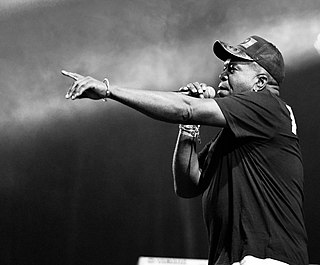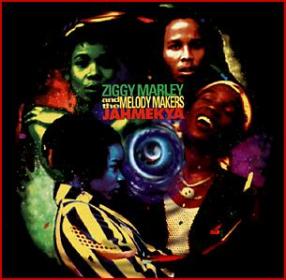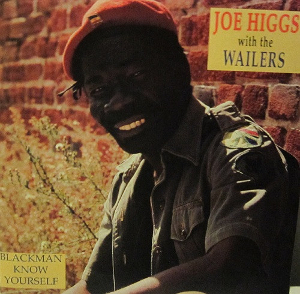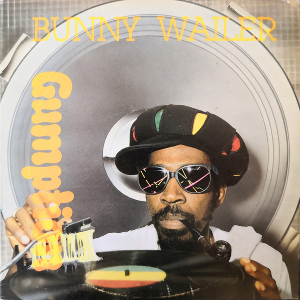
Reggae is a music genre that originated in Jamaica in the late 1960s. The term also denotes the modern popular music of Jamaica and its diaspora. A 1968 single by Toots and the Maytals, "Do the Reggay", was the first popular song to use the word reggae, effectively naming the genre and introducing it to a global audience. While sometimes used in a broad sense to refer to most types of popular Jamaican dance music, the term reggae more properly denotes a particular music style that was strongly influenced by traditional mento as well as by American jazz and rhythm and blues, and evolved out of the earlier genres ska and rocksteady. Reggae usually relates news, social gossip, and political commentary. It is instantly recognizable from the counterpoint between the bass and drum downbeat and the offbeat rhythm section. The immediate origins of reggae were in ska and rocksteady; from the latter, reggae took over the use of the bass as a percussion instrument.

Barrington Ainsworth Levy is a Jamaican reggae and dancehall artist.
There are several subgenres of reggae music including various predecessors to the form.

Stephen Robert Nesta Marley is a Jamaican-American musician. The son of Bob Marley, Marley is an eight-time Grammy Award winner, three times as a solo artist, twice as a producer of younger brother Damian Marley's Halfway Tree and Welcome to Jamrock albums, and a further three times as a member of his older brother Ziggy Marley's group Ziggy Marley & The Melody Makers.
Heartbeat Records is an independent record label based in Burlington, Massachusetts. The label specializes in Jamaican music.

Jahmekya is a studio album by the reggae group Ziggy Marley and the Melody Makers, released in 1991.
Reggae fusion is a fusion genre of reggae that mixes reggae and/or dancehall with other genres, such as pop, rock, hip-hop/rap, R&B, jazz, funk, soul, disco, electronic, and Latin music, amongst others.

This Gun for Hire is the third album by the American band the Toasters. It was released in 1990. The band supported the album with a North American tour.
John Masouri is a journalist, author, reviewer and historian for Jamaican music and several of its musical offshoots including dub, roots and dancehall. He is one of the world's foremost reggae music journalist and has worked extensively over it.

"You Don't Love Me " is a song by Jamaican recording artist Dawn Penn, released in February 1994 by Big Beat as the first single from her first studio album, No, No, No (1994). The song's lyrics are credited to Penn, Bo Diddley and Willie Cobbs, and production was handled by Steely & Clevie.

Neville O'Riley Livingston, known professionally as Bunny Wailer, was a Jamaican singer-songwriter and percussionist. He was an original member of reggae group The Wailers along with Bob Marley and Peter Tosh. A three-time Grammy Award winner, he is considered one of the longtime standard-bearers of reggae music. He was also known as Jah B, Bunny O'Riley, and Bunny Livingston.

Nuff Crisis! is a studio album by the Jamaican reggae group Culture, released in 1988. The group supported the album with a North American tour.

Unity is an album by the rap and reggae musician Shinehead, released in 1988.

Make Way for the Indian is an album by the English musician Apache Indian, released in 1995.

Human Soul is an album by the English musician Graham Parker.

Carousel is an album by the Jamaican musician Marcia Griffiths, released in 1990. It was her first solo album for Mango Records.

Spirit of Love is an album by the Nigerian musician Majek Fashek. It was released in 1991. Fashek was credited with the Prisoners of Conscience.

Blackman Know Yourself is an album by the Jamaican musician Joe Higgs, released in 1990. He is credited with the Wailers Band.

Gumption is an album by the Jamaican musician Bunny Wailer. It was released in 1990 via Shanachie Records. The album peaked at No. 10 on Billboard's World Albums chart. Gumption was nominated for a Grammy Award, in the "Best Reggae Album" category.

Sidewalk University is an album by the musician Shinehead. It was released in 1992 via Elektra Records. Shinehead supported the album with the "Sidewalk University Tour", which included Worl-A-Girl among its supporting acts. He also participated in Reggae Sunsplash 1993, his third time and his first as the headliner.
















